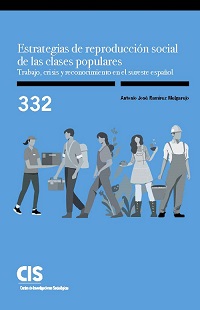
Strategies of social reproduction among the working classes: Work, crisis, and recognition in southeastern Spain
Antonio José Ramírez Melgarejo
382
Madrid, 11/27/24
ISBN: 9788474769265
Descripción
This monograph examines how working-class families obtain sufficient resources to survive and socially reproduce. In a capitalist world where the primary means of obtaining resources is through the wage relationship, the author asks, "How do families make ends meet when formal employment is scarce or temporary?" From a critical sociological perspective, this research monograph analyzes and understands the socio-labor organization and social reproduction strategies of the working classes of the Vega Alta region in the Region of Murcia. This rural territory is understood as paradigmatic of southeastern Spain and, by extension, of southern Europe, where the labor structure is strongly conditioned by the temporality of formal work, especially in agribusiness, where the formal and rational-legal regulation of work organization is intertwined with moral standards and work cultures that underlie the socio-labor relations and social reproduction strategies of the working classes. Addressing the meager formal avenues that the southern subsidiary development model offers the working classes for their subaltern social integration sheds light on a whole series of moral norms and ways of understanding life that have been constructed and solidified over the years. In this sense, the most subjective aspects are interwoven with the objective to produce ways of life and work organization that are resolved socially. The analysis of the subjective and moral aspects, which go beyond a purely quantitative and material analysis, is one of the main contributions of this monograph, because the crisis of the social integration model cannot be understood without broadening our focus to include the non-quantifiable and subjective.
